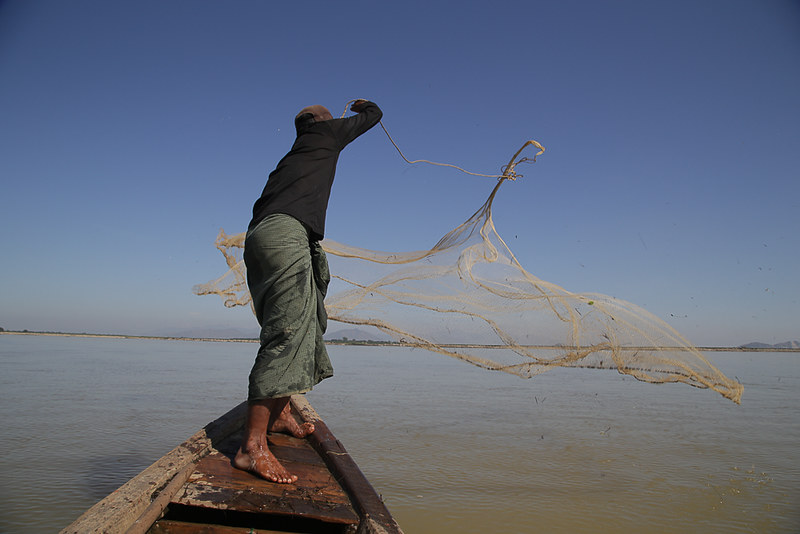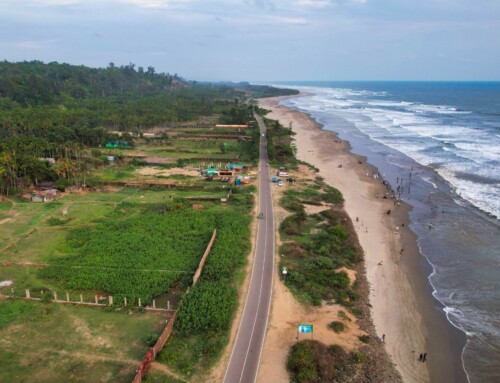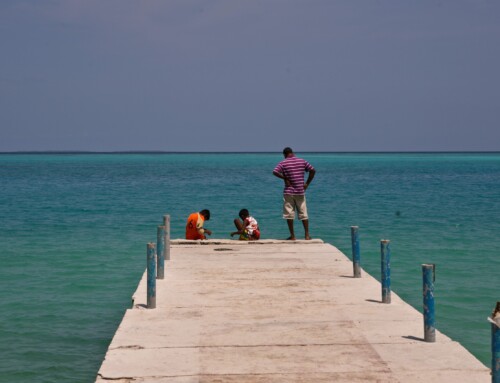Project Description
Myanmar Healthy Rivers Initiative – Report Series
Myanmar’s rivers are a key national resource, providing irrigation, hydropower, water supplies for cities and industries, and navigation and transport routes. They are also important ecosystems, supporting productive fisheries both inland and in the deltas, and underpinning the livelihoods of Myanmar communities. As Myanmar develops, aquatic ecosystems are under pressure from changes to the river systems because of settlements, extraction of water, dams and weirs, land use change and deforestation along the rivers and in the catchments, habitat loss and pollution. These changes may foster economic growth, but they will also impact on the ecosystem services and products provided by rivers. A good understanding of river health is required to inform decision-making and to prevent significant adverse environmental effects during exploitation of natural resources.
The Myanmar Healthy Rivers Initiative (MHRI) project focused on Myanmar’s two iconic rivers: the Ayeyarwady, a “working river” at the heart of Myanmar’s national prosperity; and the Thanlwin, a transboundary river with large potential for development, shared with China and Thailand. Field sites were identified in each basin to pilot monitoring programs, working closely with local communities.
The aim of the project was to develop and test a river health framework which allows government and communities to monitor the status of the riverine ecosystem services they value, and provides evidence for informed, integrated water resource management (IWRM) planning. The MHRI aimed to answer the questions: what ecosystem services provided by rivers are valued by communities and sectors? and how is the health of the river, and the provision of these services, changing over time?
The project used a range of techniques, from analysis of satellite imagery to community based monitoring, to tailor a framework suitable for the Myanmar context, where conventional river monitoring is rarely available.
See some of the photos from field trips and workshops conducted during the project:
For more information, visit the Myanmar Healthy Rivers Initiative project page
The following reports and publications were produced as part of the project:
- State of Knowledge: River Health in the Salween: This paper is a review of what is known about river health in the Salween River basin, including both the current state and uses of the river and its catchment, and issues likely to drive change in the near future.
- State of Knowledge: River Health in the Ayeyarwady: This paper is a review of what is known about river health in the Ayeyarwady River basin, including both the current state and uses of the river and its catchment, and issues likely to drive change in the near future.
- Community river health monitoring, village baseline survey report: This report presents results from the collection of baseline information on the case study communities; baseline conditions of key ecosystems within the village areas; identification of the most valuable ecosystem services and products for each case study community and characterising trends in their availability and quality over time; and, consulting with communities on the kinds of development pressures faced by the most valuable ecosystems within the community.
- Myanmar River Health Visioning Report: The report summarises the visions that communities using the Ayeyarwady and Thanlwin rivers have for a healthy river.
- River Basin Health Report Card for the Thanlwin (Salween): The report card is the result of an assessment of a range of river health indicators, designed to monitor the status of the Thanlwin/Salween riverine ecosystem services of importance to river users. It provides evidence for improved Thanlwin basin management and decision making.
- River Basin Health Report Card for the Ayeyarwady: The report card is the result of an assessment of a range of river health indicators, designed to monitor the status of the Ayeyarwady riverine ecosystem services of importance to river users. It provides evidence for improved Ayeyarwady basin management and decision making.
- A River Health Monitoring Framework for Myanmar – Methods and Tools: The report describes the methodologies and tools that were developed for assessing, monitoring and reporting the health of the Ayeyarwady and Thanlwin rivers, and suggest how these methods and tools could be taken forward and applied for ongoing river health monitoring in Myanmar.
- Characterisation of the Hydro-Ecological Zones of the Ayeyarwady River Basin: The report describes five hydro-ecological zones for the Ayeyarwady River basin. Hydro-ecological zoning could be incorporated into river health assessment frameworks and river health monitoring programs for the Ayeyarwady River basin.
- Final Workshop Report: This report presents the programme, discussions, outputs and presentations made at the final workshop for the MHRI.
- Project proposal for up-scaling the MHRI for increased impact: The proposed project builds on from the MHRI, making use of the community river health monitoring tools and knowledge base to include more villages in river health monitoring on the Ayeyarwady and Salween mainstems and selected tributaries. Community monitoring will be supported by more conventional water quality monitoring techniques and a process will be developed to integrate into river basin planning processes.
- Community River Health Survey: The survey was developed and trialled in the six project villages to assess its potential for obtaining river health information at the village scale, to inform river health monitoring and improve river health management and basin development planning. The aim of the survey is to collect standardized information from different locations on community use of riverine ecosystems and perceptions about their condition and trends over time.
- Community River Health Monitoring Manual: This manual provides a set of river health monitoring indicators and tools that the six riverine communities that formed part of the MHRI can use to monitor the status of the riverine ecosystem services they value, providing evidence they can use and communicate for informed river use decision making and planning.
The project also resulted in a number of knowledge products that were displayed at international conferences and workshops:
View the MHRI exhibition material displayed at the 2017 Greater Mekong Forum on Water, Food and Energy that took place in Yangon, Myanmar. Material includes results of a geomorphological survey of the Ayeyarwady and Thanlwin rivers, maps on water quality and flow stress in the two river basins and a map of key fish areas for the Ayeyarwady River basin.
View the MHRI poster presentation that was displayed at the 2016 Greater Mekong Forum on Water, Food and Energy. The posters present efforts to develop community-based, river health monitoring techniques for informed and inclusive decision making for the future management of Myanmar’s key rivers. The six riparian villages that form part of the project, three located along the Ayeyarwady River and three along the Thanlwin River, are presented.






